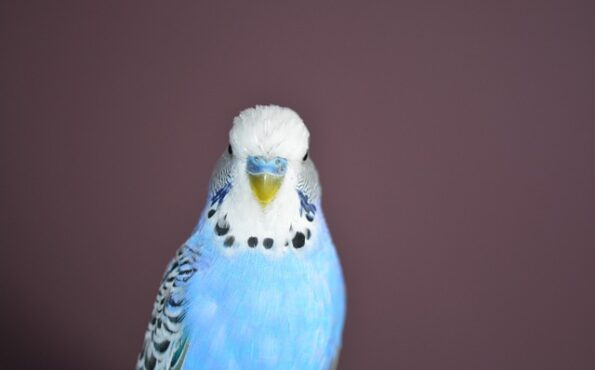Birds are among the most intelligent and affectionate animals you can have as a pet. There are many species to choose from and some have personalities as colourful as their plumage. Before getting into the details of what you need to know about buying a bird, take a moment to think about whether a bird is definitely suitable for your home and lifestyle.
Get a quote to insure your parrot for £5,000 or £2,500 of vet fees, death and theft | Death and theft cover only also available | Insurers of exotic pets since 1996 | Pay over 10 months by (0% APR) Direct Debit | Read our customer reviews on Feefo
How and where to buy a bird | Things you should know about buying a bird | Choosing a vet | Tips on caring for your bird | CITES – endangered species checks
They can be very demanding so if you work in a full-time job they may not be the best pet. And if you live in a small flat some species of birds could cause problems because they’re noisy.
As you’ll see in the care requirements section you may need to make changes to your home to accommodate a bird and have enough money to pay for things like vet fees or insurance.
If you can provide a loving and safe environment, here’s what you need to know when choosing and purchasing a bird.
How and where to buy a bird
Make sure you buy from a reputable shop or breeder.
If you’re buying an African Grey or Timneh Grey parrot you’ll need the breeder to give you an Article 10 Certificate, or you’ll need to see it. This is because these birds are now listed on CITES, Appendix 1 (Annex A in Europe).
Find out more about CITES and what’s involved.
It’s important to find out how the birds are cared for and to feel comfortable with the person you’re buying from.
The key things to ask are:
- How are the birds handled and do they have a lot of contact with humans? If they aren’t socialised properly it could take a long time to settle them in, meaning more time and commitment from you.
- How many birds do you own and what species are they? If they don’t specialise in the bird you’re interested in, it may not have been cared for correctly.
- Where do you get your birds from? If you’re purchasing from a shop, ask the retailer, where they’ve purchased the birds from. It’s illegal for birds to be wild caught and imported, so if you suspect this is the case, do not buy!
- How long have you been breeding birds for? Experience and a good reputation is always a reassuring sign.
If you feel like you need to do more research into where to buy from there are plenty of online blogs and experts. For more in depth questions, just ask.
What should parrots eat? You may like: Parrot food – what your parrot can eat, food and diet ideas
Things you should know about buying a bird
You may have your heart set on a particular bird species, for example a large parrot, however, it’s worth making sure you have the right environment for it, for you and your neighbours’ sake, as well as the bird’s.
Birds are very intelligent and can form close bonds with humans. That is perfect for owners but certain species can become too attached to their keeper, and be possessive and potentially aggressive towards their owner’s partner or children.
Patience and training using the Positive Reinforcement method can help with this.
It’s important to take into consideration the mess and noise they will make. If you live in a shared flat or with close neighbours some species will not be suitable. Reputable shops and breeders should be able to tell you about a bird’s temperament.
Check out our article on the best parrots to have as pets that offers advice on pet types and what you can expect.
Here are some characteristics of popular birds:
- African Grey Parrots – personable and not very loud but can become possessive of their owner and show aggression towards others. African Grey’s are the best talkers.
- Budgies – not too loud but can learn to talk; well-cared for birds will be very affectionate; good first-time birds; can be a good option for those living in flats
- Canaries – good first bird but don’t always form close bonds with humans
- Cockatoos – very personable, very loud and intelligent; they need a lot of attention; sometimes like to chew on things
- Macaws – big, strong and need a lot of care; not suitable for homes with children; life expectancy is about 60 years
If you want to buy a talking parrot, then African Grey’s are the best for this. Find out more about talking parrots in our article How and why do parrots talk and the best parrots for talking.
Choosing a vet
Many vets that focus on cats and dogs won’t treat exotic pets, so register your bird with an avian specialist.
Because there are fewer avian vets your nearest may be some distance from your home. Be sure to register your bird as soon as you get it because making a long trip to find a vet for the first time when your pet is ill will be stressful.
Cat and dog vets may be able to provide basic care for birds but if they refer you to a specialist you could be charged referral fees. Specialists charge referral fees – which can be higher than their usual fees – because they have to report their findings back to the original vet.
You can find a vet by looking at the RCVS website Find a vet.
Parrot pet insurance
Parrot insurance can make a huge difference if your pet is ill. It means you can cover the cost of the vet fees – which can very quickly escalate
We can cover your parrot for £5,000 or £2,500 of vet fees, death and theft, giving you peace of mind.
Or call us on 0345 982 5505.
Tips on caring for your bird
The husbandry requirements for your bird will depend on the species, so you’ll need to do some research into how to care for it.
But there are some general tips you should know.
A shocking amount of birds are lost when they fly out of an owner’s window or door. It seems obvious that windows and doors should be closed when a bird is out of its cage, but people do forget, especially in summer. Ensuring your bird is safe and secure is essential.
You could install screens so that windows can be left open, or just remember to close windows when your bird is out of its cage. Pet insurance will not pay out if your bird escapes out of an open window or door.
Ideally your parrot should be wearing a closed ring when you purchase it. This is fitted when the bird is a chick, and cannot be easily removed. The ring displays a unique number which can help identify your bird if it’s lost or stolen. If the bird is not wearing a closed ring, you should consider getting it fitted with a split ring.
Details about rings can be found on The Parrot Society website. You should also consider getting your bird microchipped. Microchipping is an irrefutable method of identification. Ensuring your bird is wearing a ring, and is microchipped can be invaluable in identifying your bird, and proving you are the owner, should it be lost or stolen.
Birds are also very susceptible to airborne toxins, the tragic use of canaries in coalmines is one example of their sensitivity. In the home toxic fumes can be produced by scented candles and other household items. Burnt cookware that’s coated in Teflon is particularly dangerous. The toxins released by burnt Teflon can cause zinc toxicosis, which can cost over a thousand pounds to treat. In 2016 we paid a claim for £1,212 for Zinc Toxicosis in an African Grey parrot, luckily it survived. Sadly Zinc Toxicity can often be fatal in birds.
Respiratory diseases can be common in pet birds. Keeping your home as clean as possible can help to reduce the risk of fungal infections such as Aspergillosis. In 2015 we paid a claim for £1,532 for Aspergillosis in a Moluccan Cockatoo. You can find out more about this infection and how to avoid it on PetMD.
You’ll need to look into the kind of cage and diet your species of bird requires. There is information on the Parrot Society site or you can check with a specialist vet, breeder or shop.
Dot Schwarz has written a range of bird care articles – the links to these articles are above.
CITES – endangered species checks
Endangered species are subject to trade regulations, which does not not mean you cannot buy an endangered bird but you’ll need to do some research and have your paperwork in order.
Some animals on the Convention on International Trade in Endangered Species of Wild Fauna and Flora (CITES) list are subject to restrictions. You can search the list using Species+, so check the species you are interested in before you buy.
CITES uses Appendices I, II and III as classification for how endangered a species is, although in the EU these have been replaced with Annexes A, B, C and D. It’s the Annex A (Appendix 1) animals that are most at risk and are more regulated.
African Grey and Timneh Grey Parrots are now listed under Annex A which means the birds now need to be accompanied by an Article 10 Certificate when sold to you.
Other popular birds listed on CITES include:
Any Annex A bird will need an Article 10 Certificate. which is issued to authorise the sale, offer for sale and display of animals for commercial purposes. Your seller should hold this.
There are two types of certificates that a seller can hold – a Specimen Specific certificate that accompanies the pet for the rest of its life, your seller should pass this to you upon sale of the bird and you should store it in a safe place. The second is a Transaction Specific Certificate. This certificate is proof of lawful acquisition of the pet and does not need to be passed to you. The seller retains it – however, you should ensure you see it and that you take a note of the reference number.
There is detailed information about CITES and how to apply for certificates on the Government’s website.
Once you’ve done your research and made all the checks we hope your bird loves its new home and has a happy life with you.
Cover your parrot for up to £5,000 of vet fees, death and theft.
Or call us on 0345 982 5505
Own a cat or dog? Get pet insurance that covers up to £12,000 for dogs and £9,000 for cats in vet fees every year, including dental for illness and accidents with British Pet Insurance.

